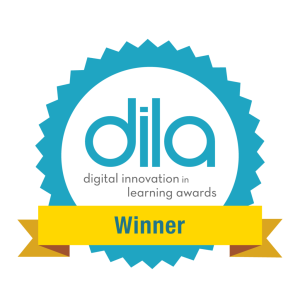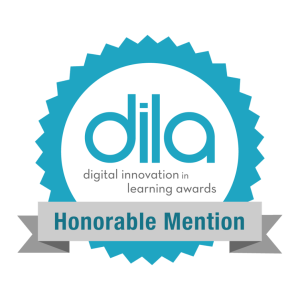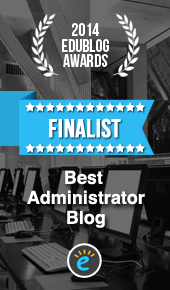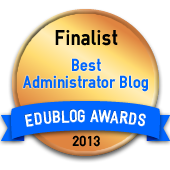Blog Archives
PersonalizedPD Cohorts
Personalized PD Cohorts Fall 2015
Each year our school plans monthly breakout sessions based on student needs, staff requests, site priorities, assessment data, and district vision. Last year our team expressed an interest in taking the learning and relationships from individual breakout sessions deeper. With the help of some Greenwood teacher-leaders and an amazing administrative intern we developed a cohort model that keeps teachers connected around a single unit of study for three months. We believe that the conversations, reflection, and collaboration that will occur between the sessions is just as valuable as the formal learning time.
The K-2 and 3-5 cohorts were designed to address the different developmental levels of students (primary or intermediate). Sometimes these levels mean staff have unique needs due to differences in curriculum, technology capabilities of primary/intermediate students, and the types of conversations we can have about race/culture with a kindergartner versus a 5th grader.
We are using a ‘Flipped’ approach to professional development so that we can maximize our time when we meet face-to-face. (This basically means that staff will have the opportunity to choose from various articles and videos to review prior to attending a session in person.) The article for September’s session was from ASCD (2015) called, “Approaching Race from the Inside Out,” by Alexandria Neason.
The resources below are for the October and November sessions on Racial Equity and Cultural Proficiency.
Culturally Responsive Teacher Matters Article by Elizabeth Kozleski
6 Reasons to Teach African-American History All Year Round Article by Andrea Thorpe
Color Blind or Color Brave TED Talk by Mellody Hobson
How to Overcome Your Biases TED Talk by Verna Myers
NAESP National Panel on Innovation
We’ve got an NAESP National Panel planned with some spectacular surprises. Join us for a conversation about innovation and connectivity in education. To get to know the presenters before the conference, simply click on the image above or download the DAQRI augmented reality app on a mobile device. (Just hover over the flyer while in the DAQRI app to launch into a 4D experience!)
Date: Wednesday, July 1, 2015
Time: 2:00pm – 3:15pm
Location: Long Beach Convention Center, Room 201B
Presenters Include:
Can’t travel to NAESP in Long Beach? Watch for a Periscope link via Twitter to join us virtually!
TOP PD CHEF — flipped PD video
We believe that our students are at the heart of all we do, and inherent in this reality is the opportunity to further amplify student voice. This school year we’ve had students teach us about Sphero programmable robot droids at a PD breakout session, and we even had kids present to our School Board as part of our site curriculum presentation. Now our students are helping us flip a faculty PD session!
The flipped PD video that’s linked above features students from the principal’s podcast crew that elected to give up one recess period to spend a working lunch with their principal creating a video for us. Teachers are asked to watch the four minute video and reflect on their learning and PD this school year. That’s all that needs to happen prior to our PD session on May 18th. The video provides an overview that will allow us to maximize our time together.
I’m really looking forward to our next PD session. We’re serving up an innovative PD experience using a format made popular by the hit TV show: CHOPPED! Come hungry to collaborate and bring your appetite too! We’ll be using a semi-structured format to facilitate cross grade-level collaboration with a relaxed culinary backdrop.
Connected Learning
Our mission is to plan Professional Development (PD) opportunities that are so responsive that every single teacher walks away from their breakout session-choice feeling empowered. Each month’s focus will align with one of our three building goals:
1.) High Student Achievement in Literacy
2.) Meaningful Technology Integration
3.) Relationships and Culture
HUGE shout-outs to our PD Chair, PD team, and our site data team. Your time and leadership has us in a great position to focus our efforts while continuing to learn and grow.
Our first round of staff PD Breakout Sessions will be Monday, October 27th and the focus will be technology. The session options below were planned based on staff feedback collected using the “Empowered Learning” forum in Moodle last spring. Sign-up for each session can be done online and Continuing Education Credits (CEUs) are available.
Session 1 (Flipped)
Connecting with Classrooms across the Country
Guiding Question: How might we teach students to connect and share responsibly? We’ll respond to the video and discuss the pedagogy & tools to connect kids to an authentic audience. We will also participate in a GHO video-conference with a school in another state. Please view the five minute “flipped PD” video prior to our session.
Session 2
Twitter 101: Getting Started…Getting Connected
Guiding Question: What is Twitter and how are educators leveraging it to connect and share? Learn the basics of Twitter like how to Tweet, basics of the bio, and the art of the hashtag. There will be a time for collaboration and assistance in setting up a Twitter account at the end of the session.
We’re looking forward to experiencing many teacher-led sessions facilitated by our very own #GWgreats over the course of the school year. This year we are also piloting an approach to making our monthly PD breakouts OPTIONAL for staff. If you’d prefer to engage with a monthly theme in a different way than what we have planned, we want to empower you to do so. Own your learning! Attend an EdCamp, organize a cross-grade collaborative conversation, observe a colleague and try something new.
A special thank you to the connected educators from across the country that took time to share a short video clip about how/why they are connecting. They’re listed below in order of appearance. I have learned so much from these educators, and encourage you to follow them all on Twitter:
Pernille Ripp | @pernilleripp
Natalie Hull | @misshulljse
Adam Welcome | @awelcome
Erin Klein | @kleinerin
Penngrove Elementary Staff | @mrsnewman014 @msjanuleski @mcandersen88 @ohsposato @mrsfadeji
Brian Costello | @btcostello05
Celeste Mayhood | @celesteclm
John Fritzky | @johnfritzky
Justin Schleider | @schleiderjustin
Becca Bailey | @artwithbailey
Eric Sheninger | e_sheninger
Heather Cooper | @hcooper815
Shelly Roche | @mrsrochejse
Kory Graham | @tritonkory
Jeff Bradbury | @teachercast
Kimberly Hurd | @khurdhorst
Ashley Drill | @mrsdrill3rd
Jamie Tewksbury | @mrstewksbury3rd
Tony Sinanis | @tonysinanis
Empowered Learning: Transforming the PD Paradigm
Power Plant PD

Image Credit: http://www.providenceri.com
I’m currently immersed in a doctoral study involving some of the most innovative and effective school leaders in the country. My research is focused on the Professional Development (PD) experiences of elementary principals in a digital age. The process of reviewing hundreds of peer-reviewed research articles and talking to countless practitioners in the field of education has been a deeply reflective exercise. I’ve been convicted of some of my own personal PD leadership failures, and I’m also gaining clarity on what I believe we need to do to create conditions in which teachers are supported in their learning.
We’ve been conditioned to believe that attending a dynamic presentation or well-organized workshop is the gold standard for PD. The traditional PD paradigm espouses that an “expert” in the field can share information about a topic with an audience, and that this transmission of knowledge will increase an audience’s capacity, motivation, etc. We’ve relied on this “Power Plant” approach to PD for several decades. This type of PD may recharge our batteries for a period of time, but it is unlikely to cultivate an educator’s long-term ownership of his/her learning.
“Power Plant PD” may have represented best-practice and sound pedagogy in the past. However, it’s the same approach we are asking our classroom teachers to migrate away from. We want students authentically engaged in relevant learning that includes opportunities to hone 21st century skills like communication, collaboration, creativity, and critical thinking. To usher in a new learning paradigm the predominant voice in the room must include our students’ voices. Why would principals and PD planners hold themselves to a lesser standard?
Empowered Learning
The most powerful PD comes when the learner is empowered…not the presenter. Teachers who are empowered are conduits for high-voltage learning. They possess an authentic yearning and fervor for growth that cannot be completely satisfied through traditional presentations.
If we are to foster an ethos in education in which staff learning is truly revered our teachers will no longer be treated like batteries needing a quick recharge. Teachers will be honored as the true “sparks” in our schools and connected with other educators across the globe. A powerful connected-pedagogy will emerge that supports teachers in securing the time and skills needed to collaborate.
In order effectively leverage the student-centric connections made possible by technology including social media, it’s critical that we are engaged in our own digital age learning. Each of us is a digital leader…the only question that remains is, “How effective and relevant are we in this role?” I’d encourage you to check out the Digital Leadership Challenge blog post and sign-up to participate in the personalized mini-challenges using the Google Drive link embedded within. If we don’t walk-the-walk and own our learning how can we expect anyone else to?
Finally, here are four additional PD questions I’m encouraging educational leaders to reflect upon. I’ll be holding myself accountable to the same four questions and encourage you to check back with me. I can’t think of anything more important than empowering the true “sparks” that are working with our students every day. Transforming the PD paradigm is paramount to supporting student learning in the digital age. We need to rethink the very definition of Professional Development; PD can be a conversation, EdChat on Twitter, written reflection on a blog, flipped faculty meeting followed by purposeful face-to-face time, or an asynchronous dialogue via Voxer. We must empower our people!
4 Questions
1.) If the PD and/or staff meetings you plan were optional would your staff still show up?
2.) How might we more effectively model current-best practices in PD; the same practices we’d expect our students to benefit from in the classroom?
3.) Is the topic of failure regularly discussed and modeled? Do staff understand the explicit value of failure in the learning/growth process?
4.) How are we leveraging technology and social media as tools for personalized learning? How are we supporting staff on this journey?

















